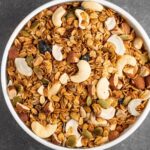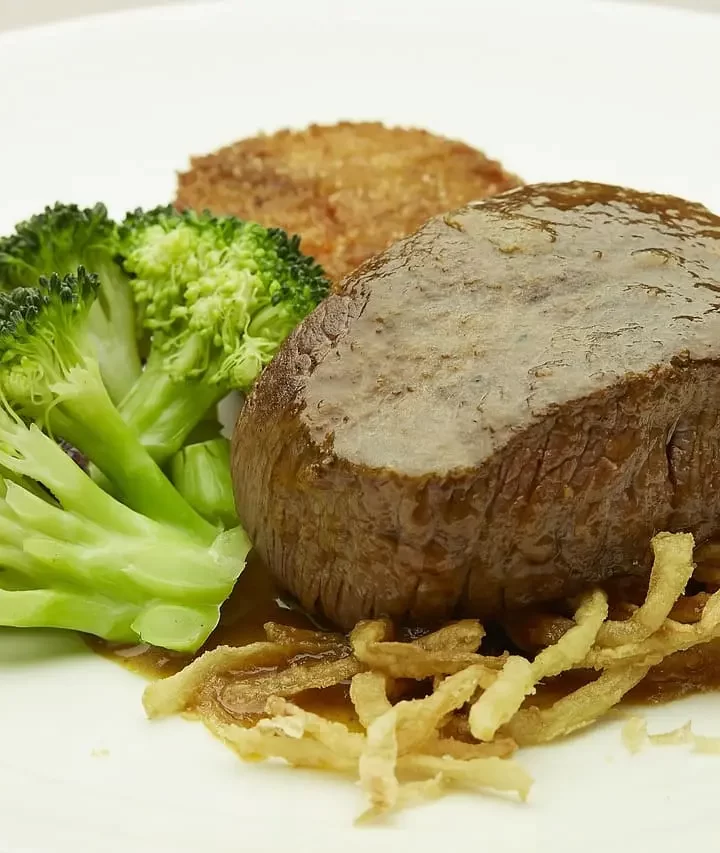It’s no secret that eating healthy is important, but did you know that it’s just as important when you’re studying? Eating the right foods can help improve your focus and concentration, which is essential when you’re trying to learn new material. In this blog post, we will discuss the significance of healthy eating when studying, and provide some tips on how to make sure you’re getting the most out of your food!

The benefits of a balanced diet
A balanced diet is essential for good health. By eating a variety of different foods, you can get the nutrients your body needs to function properly. For example, proteins are essential for building and repairing tissues, while carbohydrates provide energy. Fat is also an important part of a healthy diet, as it helps to absorb vitamins and keep you feeling full. If you want to read more about this topic, you can check out these rutgers supplemental essays to begin with. And while you’re at it, don’t forget! It’s important to eat the right kind of fat – unsaturated fats, such as those found in olive oil and nuts, are much healthier than saturated fats, which are found in animal products.
Eating a balanced diet can also help to reduce your risk of developing chronic diseases such as heart disease, stroke, and type 2 diabetes. Next time you’re planning a meal, include something from each food group!
The importance of healthy eating when studying
When it comes to academic success, healthy eating is often overlooked. It’s easy to assume that downing an energy drink and a bag of chips will get you through your next exam, but the truth is that unhealthy eating can actually lead to poorer grades.
A lack of nutrients can cause fatigue and make it difficult to concentrate, while sugary snacks can lead to an energy crash just when you need to be at your sharpest.
In contrast, eating a nutritious meal helps to improve focus and allows you to make the most of your studying time. So if you’re looking for a way to boost your grades, ditching the junk food and opting for a healthy diet is a good place to start.
Tips for eating healthy while you’re in school
Eating healthy in college is possible, even if you’re short on time and money. Here are seven tips to help you make smart food choices and stay fueled up for your studies:
1. Plan ahead: Meal prep can save you time and money in the long run. Dedicate an hour or two on the weekend to cooking some healthy meals that you can easily reheat during the week. Not only will this save you from eating out or ordering takeout, but it’ll also help you avoid unhealthy snacking.
2. Make friends with your campus dining halls: Most college dining halls offer a wide variety of healthy options, so take advantage of them! If you’re struggling to find something nutritious to eat, talk to the chef or dietitian on staff. They can usually point you in the right direction.
3. Pack your own snacks: When hunger strikes between classes, reach for a healthy snack instead of hitting up the vending machine. Nuts, fruits, and veggie chips are all great options that will give you sustained energy throughout the day.
4. Mushroom Chocolate Bar: Moving beyond traditional snacks, an interesting and potentially healthier option could be mushroom chocolate bar, which is gaining popularity. Mushroom chocolate integrates beneficial medicinal mushrooms and provides a different taste experience. It also offers the potential cognitive benefits of mushrooms, making it a unique snack worth considering during long study hours. As always, moderation is key when introducing new foods into your diet.
5. Drink lots of water: Dehydration can cause fatigue, so make sure to drink plenty of water throughout the day. Invest in a reusable water bottle that you can easily refill at one of the many water fountains on campus.
6. Get active: Exercise is not only good for your physical health, but it can also improve your mental well-being. Take a break from studying and go for a walk around campus, or sign up for one of the many fitness classes offered at most colleges.
7. Limit your alcohol consumption: It’s inevitable that you’ll probably indulge in some drinking while you’re in college (hey, we all deserve a break now and then!). But try to limit yourself to one or two drinks per night so that you don’t end up making poor food choices later on.
8. Seek out support: If you’re struggling with disordered eating or poor body image, know that you’re not alone. There are many resources available on most campuses, so reach out for help if you need it.
Conclusion
Eating healthy in college may require a bit of extra effort, but it’s worth it to fuel your body and mind for success. So plan ahead, make smart choices, and don’t forget to treat yourself every once in a while! Your grades (and your body) will thank you.














Leave a Reply